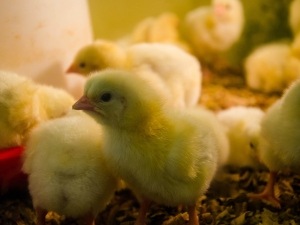
If you’ve ever raised, or seen, baby birds, you’ll know that they’re fragile. These animals can easily become sick, become hurt, and even die in the wild or in your care.
If you notice that your baby bird keeps opening and closing its mouth, you’d be right to be worried. This article explores why they do this.
If your baby bird is opening and closing its mouth possible reasons behind this may be an infection, allergies, respiratory issues, or a blockage in its throat.
Table of Contents
Baby bird opening and closing its mouth
Something stuck in there:
Opening and closing of the mouth can mean that there is something, like food that is too large or seed remnants, stuck in your baby bird’s respiratory system. The blockage can be in the bird’s crop or in the bird’s throat.
If this is what’s going on, then this opening and closing of the mouth will be accompanied by head shaking and unusual movements. Baby birds do this to try to dislodge the item.
What to do:
Giving your baby bird some water to drink will help wash out whatever’s stuck in their throat or crop
Avoid trying to remove the trapped object yourself. This can make the situation worse for the bird and cause the bird to become injured.
Food moving into the crop:
Food doesn’t always move into the bird’s crop easily, your baby bird may be opening and closing its mouth as a way to manually help food move down the crop. If you see your baby bird do this after eating, then this is likely the reason
What to do:
You don’t have to do anything in this case. The bird should stop opening and closing its mouth after the food has reached the crop
Respiratory issues:
Birds of all ages can develop respiratory issues, the constant opening and closing of the bird’s mouth can mean that your bird is suffering from a respiratory issue.
The reason why your bird has respiratory issues can be because of inadequate ventilation, toxic fumes from cleaning materials, toxic fumes from hairspray, and even malnutrition.
Other signs of respiratory issues in your baby bird include wheezing, labored breathing, panting, audible breathing, and a change in the bird’s voice.
What to do:
Try to improve the bird’s environment where you can. Open the windows or move the bird to a room with more windows, make sure the bird is eating well, do not spray hair products close to the bird, and do not use cleaning materials close to the bird.
You may also need to take your bird to a vet, they will pick up on symptoms in your baby bird that you may have not noticed.
Allergies:
Allergies don’t only affect humans, they can affect your baby bird as well. Birds can react to sulfur, peanuts, wheat, or spirulina.
Birds may even be allergic to pollen from flowers or, if they’re a tropical bird, they can be allergic to the powdery, downy feathers of the birds from Asia and Australia.
Other signs that your baby bird is suffering from allergies are excessive sneezing and discharge coming from its nose and mouth
What to do:
You’d need to pinpoint what is triggering an allergic reaction in your baby bird and remove it/them.
Changing your air filter on a frequent basis will also help, so will giving your bird antihistamines if advised by your vet
Fungal infections:
Any bird can develop a bacterial or fungal infection, infections can cause your baby bird to open and close its mouth. Birds can suffer from infections like thrush or they can suffer from aspergillosis, both of these are a type of fungal infection
What to do:
If you can, visit your local vet or even better, your local avian vet. These professionals will give you antifungals to treat your bird’s infections.
Seeing an Avian vet would be better than seeing a general vet, these types of vets will be able to spot illnesses in your bird easier and quicker than your general vet would and see things that a general vet would otherwise miss.
Visiting a vet when your bird first gets sick is recommended but you should also make visiting the vet a regular practice. This will ensure that you catch any illnesses or issues with your bird before they become a bigger problem.
If you enjoyed this article then you may also be interested in other baby bird related articles. Here are some articles that you may be interested in: Baby Bird Died Overnight?, Baby Bird Breathing Fast?, Baby Bird Clicking When Breathing

